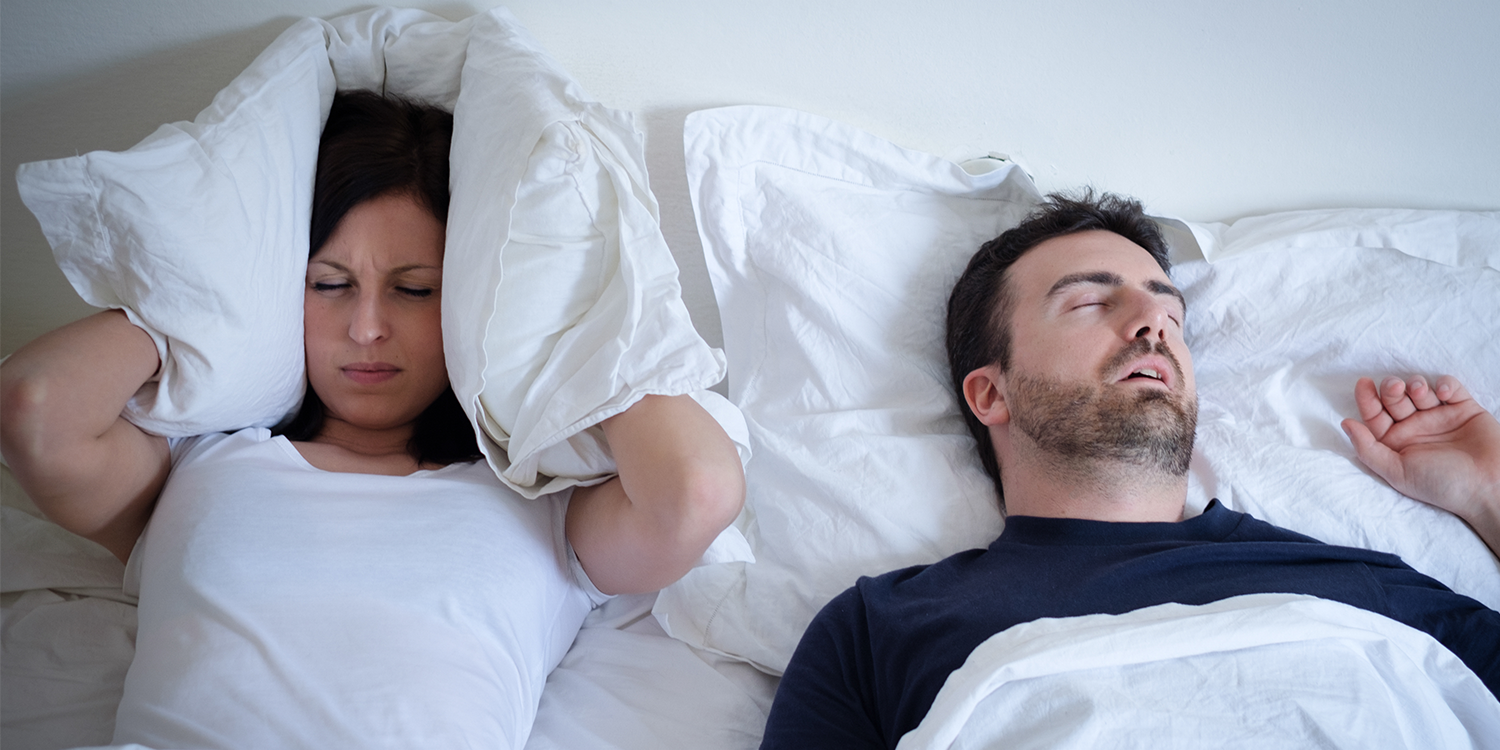Is sleep apnoea genetic?

Obstructive sleep apnoea is caused by several factors, including genetics.
Obstructive sleep apnoea is a breathing disorder that occurs when the airways collapse throughout the night during sleep. When the airways collapse, one’s breathing pauses temporarily, which results in less oxygen reaching the brain. If left untreated, the condition can lead to several other serious health issues, including hypertension, diabetes and an increased risk of heart attack and stroke. But what causes the disorder? And how can it be resolved? Read on to find out more about obstructive sleep apnoea, and how we can help if you’re suffering from the condition and its symptoms…
Is the condition genetic?
Although several factors contribute to obstructive sleep apnoea, genetics often play a part. According to research, genetics accounts for around 40 percent of all obstructive sleep apnoea cases, while the other 60 percent is caused by lifestyle or environmental factors. If you have a relative who has been diagnosed with obstructive sleep apnoea, you may be at greater risk of developing the disorder.
Also, obesity is a common risk factor for obstructive sleep apnoea and because obesity is often caused by genetic factors, sleep apnoea may be hereditary in individuals who are overweight.
What are the other risk factors?
One of the most common causes of obstructive sleep apnoea is excess body weight. Individuals who are obese are particularly at risk of developing the disorder. Other risk factors include having a thick neck (as this tends to narrow the airway); having a small lower jaw; being male; ageing; menopause and having large tonsils. Smoking and nasal congestion may also increase one’s risk of obstructive sleep apnoea, as can the use of alcohol, sedatives and tranquillisers.
What are the symptoms of sleep apnoea?
Some of the most common symptoms of obstructive sleep apnoea are loud snoring and episodes in which one stops breathing during sleep. Other common symptoms of the disorder include a gasping or choking sensation during sleep; waking up with a dry mouth; headaches (especially in the morning); daytime sleepiness; difficulty focusing; and mood and mental health-related issues like irritability and depression.
How is it treated?
Obstructive sleep apnoea can be treated in many. One of the most common treatments for moderate to severe sleep apnoea is continuous positive airway pressure (CPAP), which involves the use of a machine that delivers air pressure through a facial mask during sleep. Although the treatment works in many cases, some people find the CPAP machine to be uncomfortable and inconvenient.
If you are looking for an alternative to CPAP, you might consider wearing an oral appliance. Oral appliances are generally very comfortable to wear and work by keeping the throat open and jaw forward. Oral appliances can be recommended by your dentist, who will explain the treatment process to you and ensure that it is right for you.
How can we help?
At Future Dental, we offer treatments for patients who suffer from obstructive sleep apnoea. One of the most effective treatments that we offer is Mandibular Advancement Splints (MAS), which are comfortable and reliable appliances. MAS appliances are fabricated with the help of impressions and protrusive bite registrations of your jaws, which are taken when you come in and see us. Once your appliance has been made, you will need to come in for a fitting. Our team will let you know how best to maintain your MAS appliance and answer any questions that you have.
We are also able to diagnose and treat children with sleep apnoea. Your child may need to undergo a home sleep study, which we will explain to you in detail.
If you would like to find out more about how we can help manage your or your child’s sleep apnoea, please have a look here.
If you are ready to come in and see us, please get in touch here or give us a call on (07) 4051 4580.


